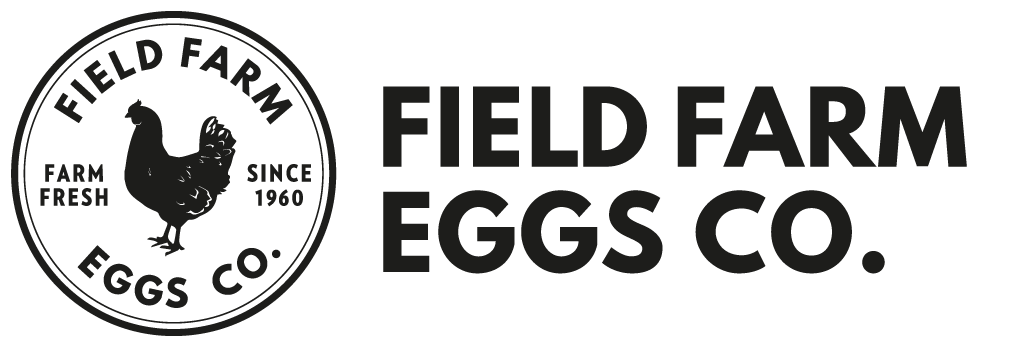Q: How should I store an egg?
A: Proper food storage is the key to extending how long eggs are okay to eat. You can keep eggs fresh for longer by storing them in their original pack in the refrigerator at a constant temperature. Storing eggs like this will keep out moisture and other contaminants.
Q: What is the shelf life of an egg?
A: The shelf life of an egg is greatly reduced if the eggs are not kept refrigerated or at a constant temperature. All our eggs have a 'best before' date not a 'use by' date. Our best before date is 28 days after the date the egg is laid. The shelf life is 21 days after the egg is laid (but 7 days before the best before date).
FIELD FARM EGGS TOP TIP!
If you want to freeze your eggs to extend their shelf life, it is best to crack the eggs into a freezer safe container and gently blend in 1/2 teaspoon of salt before freezing. The eggs can then be thawed and used. If you do this, also be sure to thaw the frozen eggs in the refrigerator before using.
Q: How is an egg made?
A: Chickens are egg-ceptional! They can produce a new egg every 25.5 hours. This is a very short time to create something as complex and as eggs-traordinary as an egg.
An egg is made from the inside out. The yolk is made first, and then wrapped in a layer of egg white, before being neatly packaged up in an eggshell. When the yolk is ready it is released along the oviduct. The first part of the oviduct is where the egg white (albumen) is added. The egg white mainly consists of protein, water and minerals.
The egg carries on along the oviduct where it grows two connecting strands at the top and the bottom called chalaza, which anchor the yolk to the shell keeping it in the centre of the egg.
The next stage is for the shell membranes to form around the white. After this the egg continues down into the uterus where the shell is added. The shell is made from calcium carbonate, which is also found in marble and chalk.
The colour of the shell depends on the breed of chicken, the food that the hen is eating and on the individual chicken itself. Whatever the colour of the shell, the taste of a Field Farm egg is unbeatable!
Q: HOW TO PREVENT SALMONELLA?
All of our hens are vaccinated against salmonella and the eggs are tested by the Animal Health Veterinary Laboratories Agency on a regular basis.
You can do a few things yourself to help prevent it:
- Avoid eating high risk foods such as raw or lightly cooked eggs
- Keep food properly refrigerated
- Cook foods to a safe internal temperature.
- Clean hands with soap and warm water before handling food.
- Wash your hands thoroughly after contact with animals, their food or treats, or their living environments.
If we haven't answered your question.
Email our eggs-pert team today!

